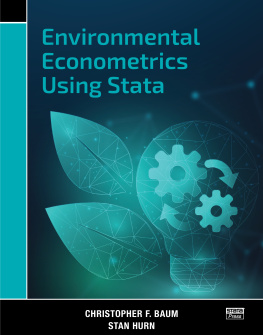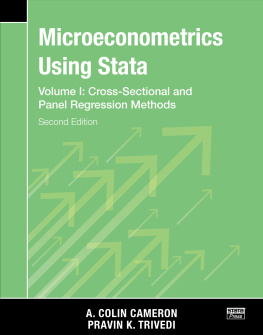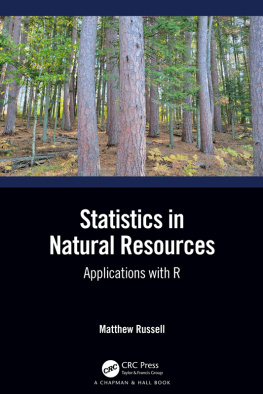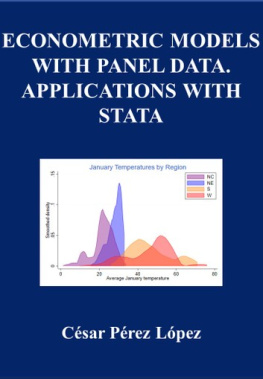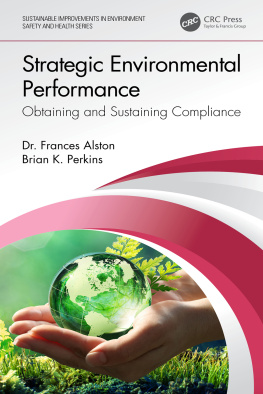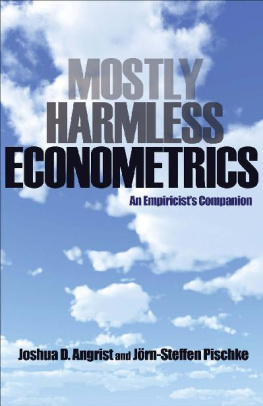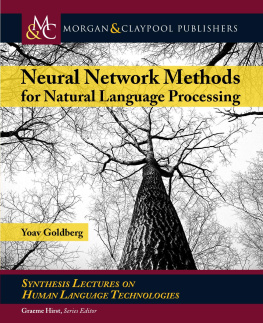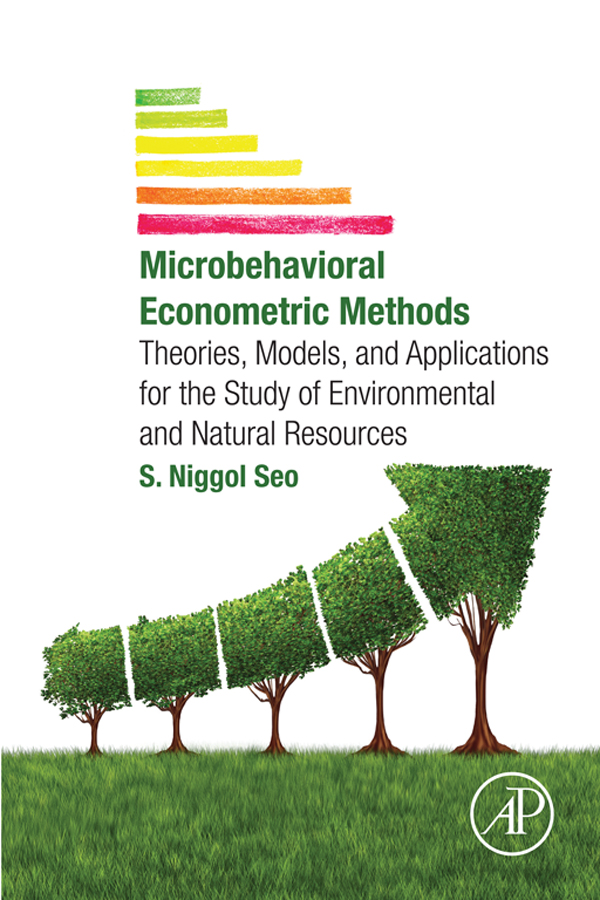Microbehavioral Econometric Methods
Theories, Models, and Applications for the Study of Environmental and Natural Resources
S. Niggol Seo
Muaebak Institute of Global Warming Studies
Seoul, Korea
Table of Contents
Copyright
Academic Press is an imprint of Elsevier
125 London Wall, London EC2Y 5AS, United Kingdom
525 B Street, Suite 1800, San Diego, CA 92101-4495, United States
50 Hampshire Street, 5th Floor, Cambridge, MA 02139, United States
The Boulevard, Langford Lane, Kidlington, Oxford OX5 1GB, UK
Copyright 2016 Elsevier Inc. All rights reserved.
No part of this publication may be reproduced or transmitted in any form or by any means, electronic or mechanical, including photocopying, recording, or any information storage and retrieval system, without permission in writing from the publisher. Details on how to seek permission, further information about the Publishers permissions policies and our arrangements with organizations such as the Copyright Clearance Center and the Copyright Licensing Agency, can be found at our website: www.elsevier.com/permissions.
This book and the individual contributions contained in it are protected under copyright by the Publisher (other than as may be noted herein).
Notices
Knowledge and best practice in this field are constantly changing. As new research and experience broaden our understanding, changes in research methods, professional practices, or medical treatment may become necessary.
Practitioners and researchers must always rely on their own experience and knowledge in evaluating and using any information, methods, compounds, or experiments described herein. In using such information or methods they should be mindful of their own safety and the safety of others, including parties for whom they have a professional responsibility.
To the fullest extent of the law, neither the Publisher nor the authors, contributors, or editors, assume any liability for any injury and/or damage to persons or property as a matter of products liability, negligence or otherwise, or from any use or operation of any methods, products, instructions, or ideas contained in the material herein.
British Library Cataloguing-in-Publication Data
A catalogue record for this book is available from the British Library
Library of Congress Cataloging-in-Publication Data
A catalog record for this book is available from the Library of Congress
ISBN: 978-0-12-804136-9
For information on all Academic Press publications visit our website at https://www.elsevier.com/

Publisher: Nikki Levy
Acquisition Editor: J. Scott Bentley
Editorial Project Manager: Susan Ikeda
Production Project Manager: Julie-Ann Stansfield
Designer: Matthew Limbert
Typeset by Thomson Digital
About the Author
S. Niggol Seo
Professor S. Niggol Seo is a natural resource economist who specializes in the study of global warming. Born in a rural village in South Korea in 1972, he studied at a doctoral degree program at the University of California at Berkeley and received a PhD degree in Environmental and Natural Resource Economics from Yale University in May 2006 with a dissertation on microbehavioral models of global warming. Since 2003, he has worked with the World Bank on various climate change projects in Africa, Latin America, and Asia. He held professorial positions in the UK, Spain, and Australia from 200615. Professor Seo has published three books and over 45 international journal articles on global warming. He frequently serves as a journal referee for more than 30 international journals and has been on the editorial boards of the two journals: Food Policy, Applied Economic Perspectives and Policy. He received an Outstanding Applied Economic Perspectives and Policy Article Award from the Agricultural and Applied Economics Association in Pitsburgh in June 2011.
Preface
Environmental and natural resources provide humanity with shelters and basic materials to live on. Human beings have survived and flourished on this Earth by appropriating and enjoying environmental surroundings and natural resources. During the past two centuries, it is noted that humanitys influences on nature and the environment have vastly increased. Notwithstanding the remarkable growth in economic well-being realized over this time period, there are many signs that citizens of Earth are concerned about how humans utilize and care for natural and environmental endowments on the planet. In order to answer many pressing concerns and scholarly inquiries, a large array of research fields on environmental and natural resources has emerged.
This book presents a full spectrum of microbehavioral econometric methods that can be applied to a large variety of studies of environmental and natural resources. The microbehavioral econometric methods are concerned with how an individual makes decisions, taking into account given circumstances, to make the best use of concerned resources. This book places the ensemble of microbehavioral econometric and statistical methodologies in the context of how an individual, a community, or a society makes decisions on essential natural resources and environmental assets.
The present author puts together a large number of theories, models, and empirical studies that fall into the literature of microbehavioral methods and studies. The approach of the book is therefore encompassing, covering economics, statistics, psychology, public policy, finance, environmental science, ecology, climate science, and global affairs. The descriptions of the statistical methods are taken purposefully to cover the entire range of methodological advances that are pertinent to modeling individual decisions and outcomes.
This book provides applications of the microbehavioral methodologies to natural resource managers decision problems faced with global warming and climatic changes. The nature of the problem of global warming is reviewed succinctly. The present author provides detailed explanations of how the microbehavioral methodologies developed in the first three chapters of the book can be applied to examine behaviors of individuals, communities, and societies in response to changing external climate conditions. The book utilizes the rural farm household survey data collected at the continental level in Latin America, Africa, and India. These low-latitude regions are on their own of great interest to environmental and natural resource researchers for their unique economies, societies, ecologies, and climates.
The present author hopes that the book will provide a valuable resource to the students and professionals of environmental and natural resource studies. The book is ideal for a textbook of a range of microbehavioral statistics courses in the school of environment, school of agricultural and natural resources, and school of public policy. The book also unfolds many important academic frontiers in the studies of microbehavioral statistics which are hoped to serve as an attraction for the scholars and professionals of microbehavioral statistics and economics.


